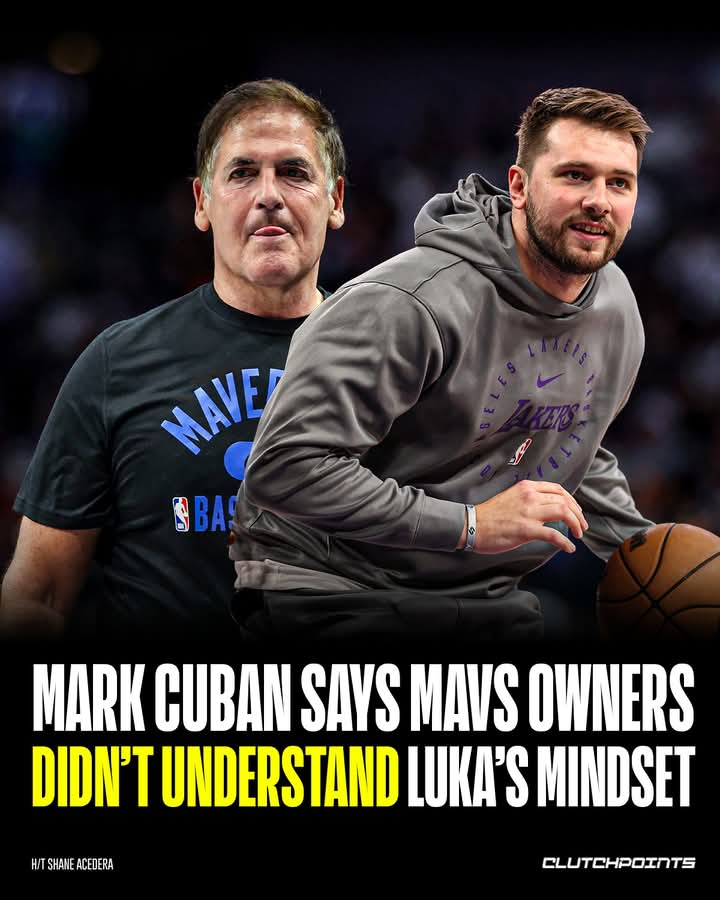
Mark Cuban’s comments about Luka Dončić and his Balkan roots give us a glimpse into how culture and mindset can deeply influence an athlete’s approach to sports, and perhaps even life itself. By saying, “It wasn’t like he was ripped and had a six-pack,” Cuban is pointing to a common misconception in the American sports world—that elite athleticism is always visual. That greatness must look a certain way, like a sculpted physique or high-flying dunks. But Luka has defied that stereotype from the moment he entered the NBA.
Cuban brings up a bigger point when he talks about trying to “understand Luka.” Luka isn’t just a European player—he’s a Balkan one. And to people familiar with the region, that means a lot more than just geography. The Balkans, a region in southeastern Europe, have a long and complicated history, shaped by conflict, resilience, and a unique cultural fabric. Countries like Slovenia, Serbia, Croatia, Bosnia, and Montenegro have produced some of the most skilled, mentally tough, and fundamentally sound basketball players in the world. Why? Because over there, basketball is played and taught differently. It’s not just about flash. It’s about IQ, angles, timing, and understanding the rhythm of the game.
Luka grew up in this environment. He was playing professional basketball in Spain for Real Madrid as a teenager, not getting hyped up in AAU tournaments. His development was forged in competitive, structured leagues that valued team play and technical excellence. By the time he arrived in the NBA, he had already played more high-level basketball than most 21-year-olds could dream of. So when fans or analysts questioned his conditioning or physique, they completely missed the point.
That’s what Cuban is calling out. He draws a comparison with Nikola Jokić, another Balkan superstar who’s flipped the NBA on its head. Jokic, who’s from Serbia, doesn’t look like your typical dominant center, but his mind is like a supercomputer on the court. He’s always two steps ahead. His passes seem impossible until you watch them in slow motion. Like Luka, Jokic doesn’t play with explosive athleticism, but with elegance, anticipation, and precision.
This “different mindset” Cuban refers to isn’t just about skill—it’s about how these players approach competition. Balkan athletes often come from humble beginnings, where grit and discipline are part of daily life. They play with an edge, a certain toughness that comes from experience beyond basketball. Their game is layered with a kind of creativity born from necessity—learning to do more with less.
It’s not just Jokić and Dončić either. If you look historically, the Balkans have produced legends like Dražen Petrović, Vlade Divac, Toni Kukoč, Peja Stojaković, and more recently players like Bogdan Bogdanović and Dario Šarić. These are players who brought a cerebral, team-first approach to the game, often sacrificing individual stats for smarter plays.
So when Cuban talks about people not understanding Luka, he’s really highlighting a cultural blind spot. The American lens often evaluates players through certain metrics—vertical leap, speed, strength—but fails to fully appreciate how deeply basketball IQ, vision, and instinct can set someone apart. Luka doesn’t fit the mold because the mold was never made for players like him.
And yet, here he is—an MVP-caliber talent who’s already accomplished more in a few seasons than most players do in a career. He’s not just playing the game; he’s seeing it differently. Just like Jokic. Just like so many of the Balkan greats who came before him.
Cuban’s insight might sound casual, even a bit off-the-cuff, but it taps into a bigger truth: to understand greatness, you have to understand where it comes from. And sometimes, that means looking beyond the surface.







